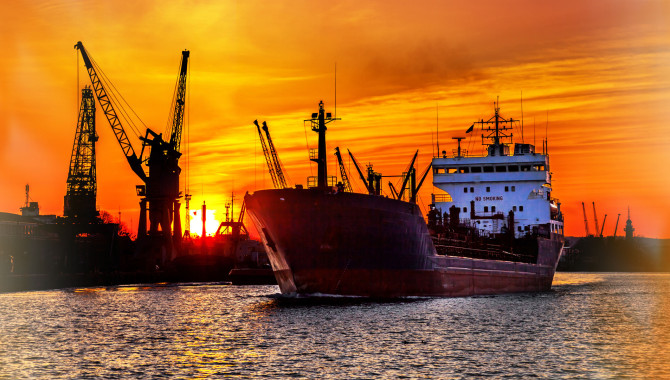

Since June 2019, Hong Kong has witnessed major political unrest and radical protests.Many were distressed by the ceaseless violence and wanton destruction. Nevertheless, everyone still felt confident in the future of our city. After all, the SAR enjoys the strong support of the central government and also the unique "one country, two systems" framework. These are its two driving forces when it comes to economic development.
First, the central government has spared no effort in sustaining the prosperity of Hong Kong. Mainland-based enterprises, especially state-owned enterprises, also assist the central government in its support of the city. They actively engage in the industrial development of Hong Kong.
Secondly, Hong Kong's institutional advantages are still irreplaceable - although its competitors in the Asia-Pacific region are rapidly catching up. The current situation resembles an old Chinese saying: "In a boat against the current, one can only strive ahead successfully or be beaten back ceaselessly into the past." Thirdly, if the city fails to take swift action to stop street violence and end the unrest, the socio-political environment will remain hostile. Then people's livelihoods will fall into a downward spiral of recession. Local and overseas enterprises will also reconsider their long-term business plans in Hong Kong and possibly leave the city.
Recently, the "one country, two systems" principle was defined as one of the most significant advantages of Chinese state governance. Thanks to this principle, the International Chamber of Shipping (ICS), the world's largest non-governmental international shipping organization headquartered in London, took the lead in the shipping industry by setting up an overseas office, China Liaison Office, in Hong Kong.
China and Asia are increasingly influential in the international shipping market, and this influence is shifting from the east to the west. Such momentum has dominated trends in many global industries - including the shipping industry. ICS has strengthened its ties with the Chinese government and companies. Therefore, our establishment of Chinese liaison office in Hong Kong proves that, in the eyes of the ICS-led international shipping industry, Hong Kong is an inseparable part of China. And the capitalist spirit of Hong Kong helps us to outwit our main competitors in Singapore and Tokyo.
As President Xi Jinping said in 2018, Hong Kong, with its advantages under "one country, two systems", supports the country in its development in many different ways.
In September 2019, Hong Kong was rated as the "world's freest economy". But the social turmoil makes me wonder whether winning "first place" will be a curse rather than a blessing if the city fails to make the most of this. Hong Kong, a faithful follower of liberal capitalism, has pursued laissez-faire economic development model for decades. Since 2012, the SAR governments started to play more proactive roles in promoting economic development as "promoters" and "facilitators". Despite these efforts, annual government Policy Addresses still fall short when it comes to a long-term commitment. Long-term plans in vital areas such as economic development strategies and measures to improve people's livelihoods are needed, because deep-seated structural problems still need be resolved.
The short-sightedness of a laissez-faire economy also affects the performance of the shipping industry in Hong Kong. In 2019, the 22nd year of the establishment of SAR, Hong Kong's port throughput slipped from first in the world to the seventh. It was not until last year that the SAR government proposed in its Policy Address to develop feasible measures to attract international players to engage with the maritime industry. To our disappointment, the proposal has yet to be carried out. It is even more regrettable that the government's comprehensive strategy to promote the development of the maritime industry, proposed in 2017, still just remains lip service.
Although the 2018 Policy Address listed eight measures to boost the maritime industry, none of these minor repairs can solve the fundamental problems affecting the long-term development of Hong Kong's shipping industry. The city should take the advantage of the Guangdong-Hong Kong-Macao Greater Bay Area to deal with the fierce competition that prevails in Asia. Another fundamental issue for the SAR government to consider is the expansion of Hong Kong's shipping companies - by actively participating in the Belt and Road Initiative. This could include ship management, leasing, and financing. The SAR government should embark on a new path that also leads to sustainable economic development. Such a transformation can only be achieved when the government moves away from the short-sighted free market mindset and develops a clear vision of the future. It also has to maximize competitiveness and have a long-term development plan for the city's pillar industries - including shipping.
It is truly a crucial time for Hong Kong to seriously consider vital issues including how to faithfully implement "one country, two systems" and maximize its local advantages. President Xi said: "Development, an abiding pursuit, is crucial for Hong Kong's survival, and it holds the golden key to resolving various issues in Hong Kong." To fully implement the "one country, two systems" policy, Hong Kong must continue to maintain its status as an international transportation hub while enhancing its strengths in vital economic sectors - including shipping. The city should pinpoint "the needs of the motherland" when moving forward in the coming decade and boost its competitiveness in Asia. Only through these approaches, can the "Pearl of the Orient" forever shine in the region.
Source:EdwardLiu,Chinadaily
The opinions expressed herein are the author's and not necessarily those of The OLO News.
Quality Companies